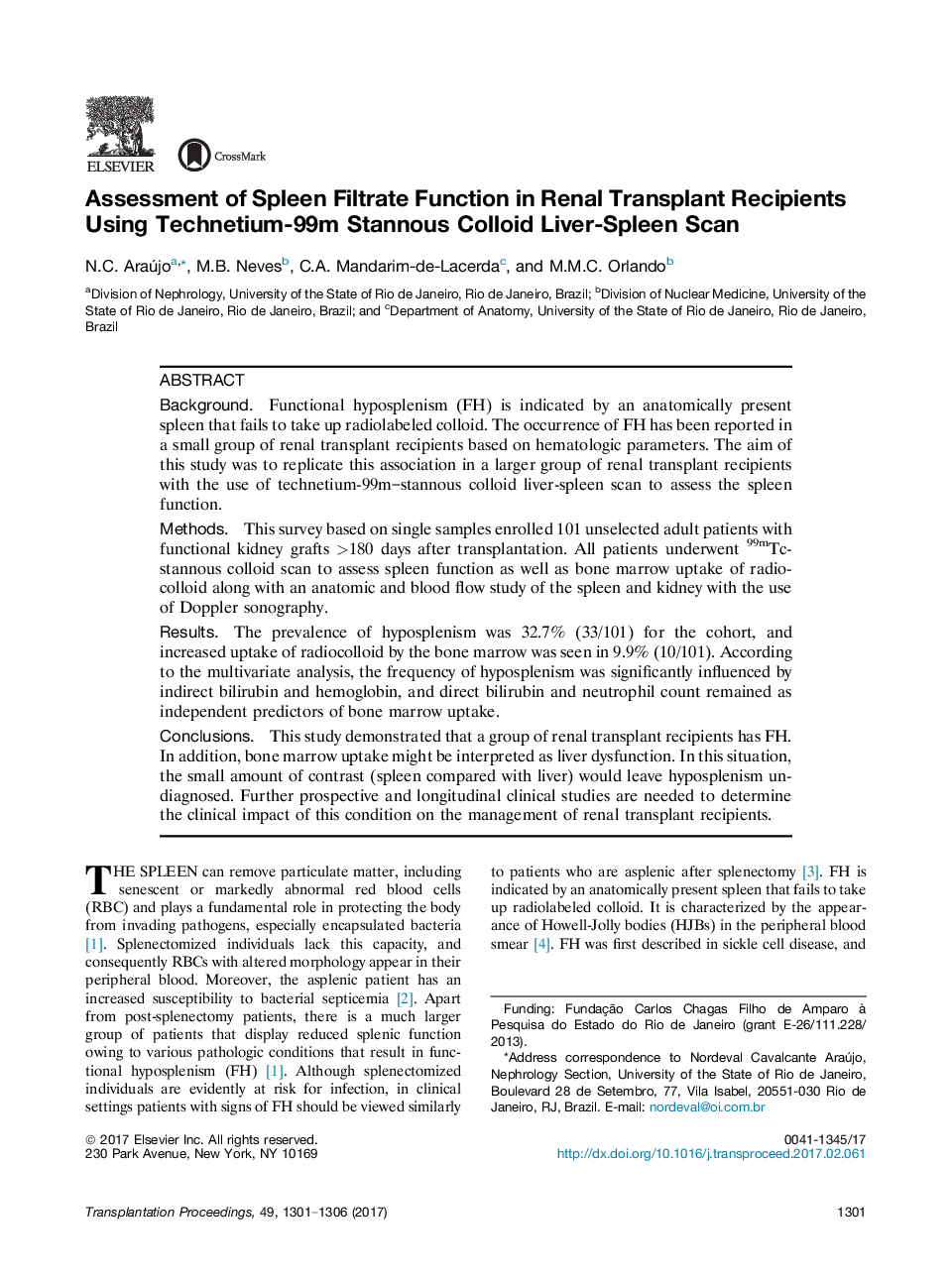| کد مقاله | کد نشریه | سال انتشار | مقاله انگلیسی | نسخه تمام متن |
|---|---|---|---|---|
| 5728685 | 1411669 | 2017 | 6 صفحه PDF | دانلود رایگان |

- The spleen removes particulate matter and protects the body from pathogens.
- Patients with functional hyposplenism (FH) are more susceptible to bacterial infection.
- This study demonstrated with the use of colloid liver-spleen scan that a group of renal transplant recipients had FH.
BackgroundFunctional hyposplenism (FH) is indicated by an anatomically present spleen that fails to take up radiolabeled colloid. The occurrence of FH has been reported in a small group of renal transplant recipients based on hematologic parameters. The aim of this study was to replicate this association in a larger group of renal transplant recipients with the use of technetium-99m-stannous colloid liver-spleen scan to assess the spleen function.MethodsThis survey based on single samples enrolled 101 unselected adult patients with functional kidney grafts >180 days after transplantation. All patients underwent 99mTc-stannous colloid scan to assess spleen function as well as bone marrow uptake of radiocolloid along with an anatomic and blood flow study of the spleen and kidney with the use of Doppler sonography.ResultsThe prevalence of hyposplenism was 32.7% (33/101) for the cohort, and increased uptake of radiocolloid by the bone marrow was seen in 9.9% (10/101). According to the multivariate analysis, the frequency of hyposplenism was significantly influenced by indirect bilirubin and hemoglobin, and direct bilirubin and neutrophil count remained as independent predictors of bone marrow uptake.ConclusionsThis study demonstrated that a group of renal transplant recipients has FH. In addition, bone marrow uptake might be interpreted as liver dysfunction. In this situation, the small amount of contrast (spleen compared with liver) would leave hyposplenism undiagnosed. Further prospective and longitudinal clinical studies are needed to determine the clinical impact of this condition on the management of renal transplant recipients.
Journal: Transplantation Proceedings - Volume 49, Issue 6, JulyâAugust 2017, Pages 1301-1306